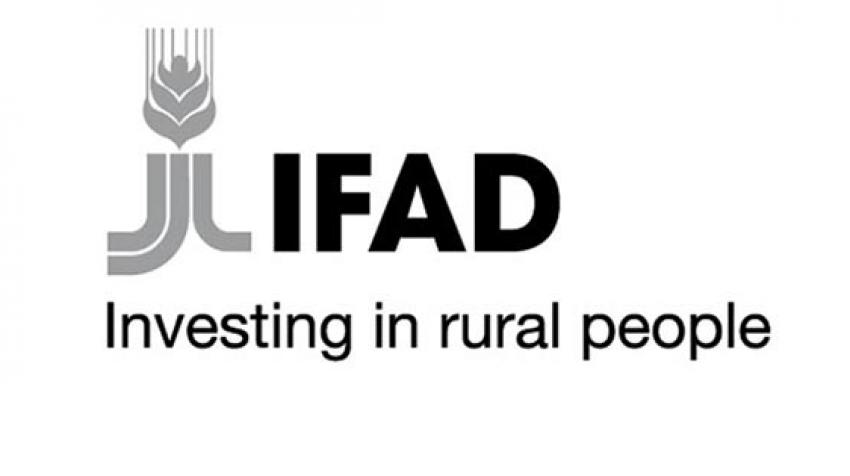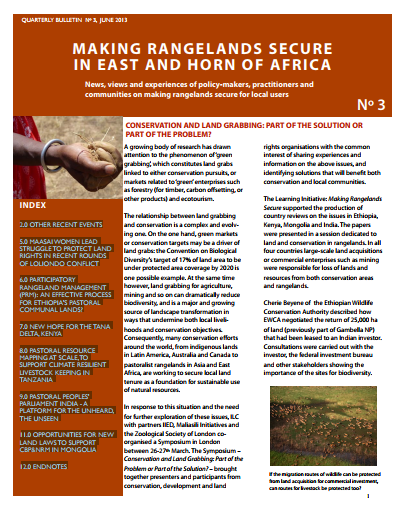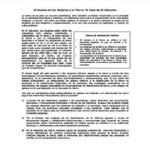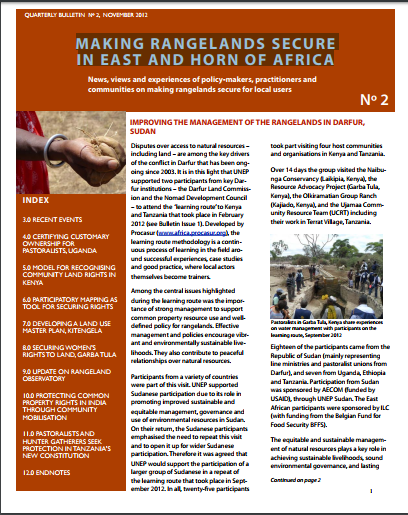Focal point
Location
The International Fund for Agricultural Development (IFAD), a specialized agency of the United Nations, was established as an international financial institution in 1977 as one of the major outcomes of the 1974 World Food Conference. The Conference was organized in response to the food crises of the early 1970s that primarily affected the Sahelian countries of Africa. The conference resolved that "an International Fund for Agricultural Development should be established immediately to finance agricultural development projects primarily for food production in the developing countries". One of the most important insights emerging from the conference was that the causes of food insecurity and famine were not so much failures in food production, but structural problems relating to poverty and to the fact that the majority of the developing world's poor populations were concentrated in rural areas.
IFAD's mission is to enable poor rural people to overcome poverty.
IFAD is dedicated to eradicating rural poverty in developing countries. Seventy-five per cent of the world's poorest people - 1.4 billion women, children and men - live in rural areas and depend on agriculture and related activities for their livelihoods.
Working with rural poor people, governments, donors, non-governmental organizations and many other partners, IFAD focuses on country-specific solutions, which can involve increasing rural poor peoples' access to financial services, markets, technology, land and other natural resources.
Resources
Displaying 51 - 55 of 102CONSERVATION AND LAND GRABBING: PART OF THE SOLUTION OR PART OF THE PROBLEM?
2.0 OTHER RECENT EVENTS 5.0 MAASAI WOMEN LEAD STRUGGLE TO PROTECT LAND RIGHTS IN RECENT ROUNDS OF LOLIONDO CONFLICT 6.0 PARTICIPATORY RANGELAND MANAGEMENT (PRM): AN EFFECTIVE PROCESS FOR ETHIOPIA’S PASTORAL COMMUNAL LANDS? 7.0 NEW HOPE FOR THE TANA DELTA, KENYA 8.0 PASTORAL RESOURCE MAPPING AT SCALE,TO SUPPORT CLIMATE RESILIENT LIVESTOCK KEEPING IN TANZANIA 9.0 PASTORAL PEOPLES’ PARLIAMENT INDIA - A PLATFORM FOR THE UNHEARD, THE UNSEEN 11.0 OPPORTUNITIES FOR NEW LAND LAWS TO SUPPORT CBP&NRM IN MONGOLIA 12.0 ENDNOTES
Gender and Rural Development Brief: Europe and Central Asia
Land tenure security and poverty reduction
"Land is fundamental to the lives of poor rural people. It is a source of food, shelter, income and social identity. Secure access to land reduces vulnerability to hunger and poverty. But for many of the world’s poor rural people in developing countries, access is becoming more tenuous than ever."
El acceso de las mujeres a la tierra: el caso de El Salvador
La tierra no es solo un recurso económico, sino también un factor importante en la creación de la identidad individual y colectiva, un elemento clave para la organización de la vida social, religiosa y cultural así como un medio político. El acceso a la tierra aumenta el poder de las mujeres en sus hogares y organizaciones, a la vez que aumenta su bienestar y reduce su vulnerabilidad.
MAKING R ANGEL ANDS SECURE IN EAST AND HORN OF AFRICA
INDEX 3.0 RECENT EVENTS 4.0 CERTIFYING CUSTOMARY OWNERSHIP FOR PASTORALISTS, UGANDA 5.0 MODEL FOR RECOGNISING COMMUNITY LAND RIGHTS IN KENYA 6.0 PARTICIPATORY MAPPING AS TOOL FOR SECURING RIGHTS 7.0 DEVELOPING A LAND USE MASTER PLAN, KITENGELA 8.0 SECURING WOMEN’S RIGHTS TO LAND, GARBA TULA 9.0 UPDATE ON RANGELAND OBSERVATORY 10.0 PROTECTING COMMON PROPERTY RIGHTS IN INDIA THROUGH COMMUNITY MOBILISATION 11.0 PASTORALISTS AND HUNTER GATHERERS SEEK PROTECTION IN TANZANIA’S NEW CONSTITUTION 12.0 ENDNOTES









